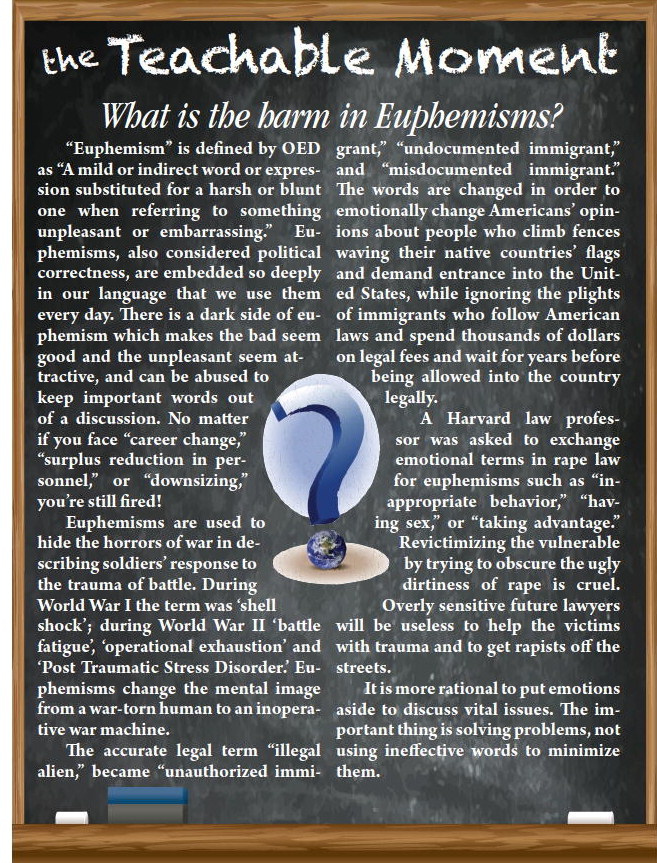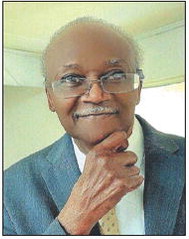Teachable Moment


the Teachable Moment
What is the harm in Euphemisms?
“Euphemism” is defined by OED as “A mild or indirect word or expression substituted for a harsh or blunt one when referring to something unpleasant or embarrassing.” Euphemisms, also considered political correctness, are embedded so deeply in our language that we use them every day. There is a dark side of euphemism which makes the bad seem good and the unpleasant seem attractive, and can be abused to keep important words out of a discussion. No matter if you face “career change,” “surplus reduction in personnel,” or “downsizing,” you’re still fired!
Euphemisms are used to hide the horrors of war in describing soldiers’ response to the trauma of battle. During World War I the term was ‘shell shock’; during World War II ‘battle fatigue’, ‘operational exhaustion’ and ‘Post Traumatic Stress Disorder.’ Euphemisms change the mental image from a war-torn human to an inoperative war machine.
The accurate legal term “illegal alien,” became “unauthorized immigrant,” “undocumented immigrant,” and “misdocumented immigrant.” The words are changed in order to emotionally change Americans’ opinions about people who climb fences waving their native countries’ flags and demand entrance into the United States, while ignoring the plights of immigrants who follow American laws and spend thousands of dollars on legal fees and wait for years before being allowed into the country legally. A Harvard law professor was asked to exchange emotional terms in rape law for euphemisms such as “inappropriate behavior,” “having sex,” or “taking advantage.” Revictimizing the vulnerable by trying to obscure the ugly dirtiness of rape is cruel.
Overly sensitive future lawyers will be useless to help the victims with trauma and to get rapists off the streets.
It is more rational to put emotions aside to discuss vital issues. The important thing is solving problems, not using ineffective words to minimize them.





